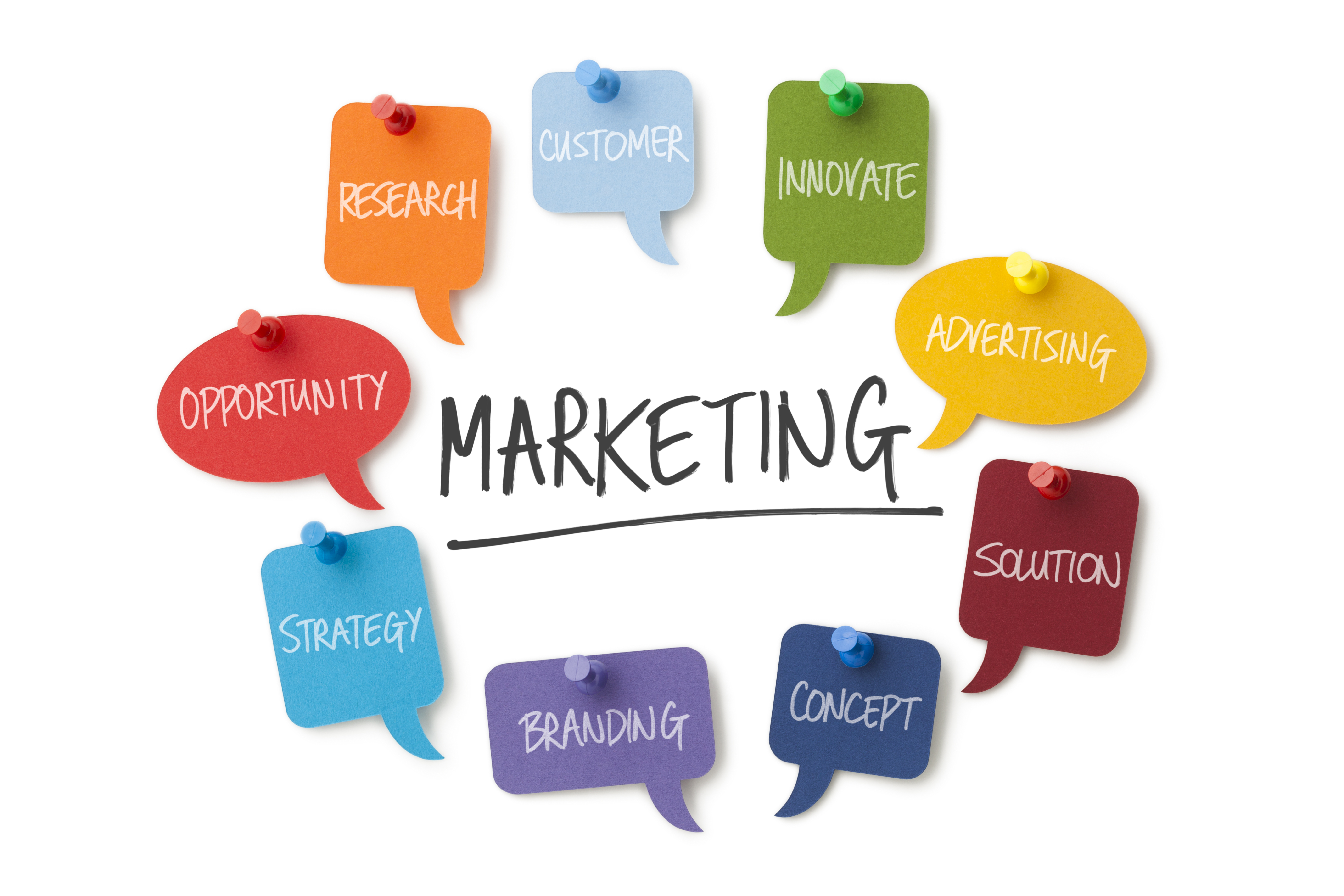Have you ever found yourself craving a burger and fries or an ice cream out of the blue, especially after a commercial pops up on your screen? It’s almost like magic, isn’t it? One moment you’re determined to eat healthily, and the next, you’re lacing up your sneakers, ready to dash to the nearest fast-food joint for a Kit Kat McFlurry. This scenario is all too familiar, and it begs the question: How do these cravings happen? How do products become so deeply ingrained in our minds that we act on impulse, without a second thought?
The Importance and Reality of Marketing
The answer is more complex than simple hunger pangs or a fleeting desire for something sweet. It’s about the psychological and physiological responses triggered by media and advertising, which are meticulously crafted to disrupt our body’s homeostasis. This disruption, known as body dysregulation, leaves us seeking relief, and often, that relief comes in the form of the very products we see advertised. It’s a cycle of dysregulation and regulation, where media promises a return to our body’s natural baseline with the purchase of their product.
It’s not just about individual experiences. This phenomenon has societal implications as well. We live in what can be termed a ‘Society of Dysregulation,’ where our collective nervous systems are constantly seeking ways to feel relieved and relaxed. This societal trend perpetuates a cycle of consumption, where one person’s solution to dysregulation becomes another’s source of envy and dissatisfaction, leading to an endless pursuit of the next best thing.
Let’s pivot to a different perspective. There’s a prevailing sentiment that some products are so exceptional that they don’t require marketing. This idea has been floating around, especially in the tech and startup communities. It’s a romantic notion, the idea that a great product will naturally attract users and render marketing efforts unnecessary. But is this really the case?
Consider Apple, a company that reached a valuation of 1 trillion dollars. Many attribute its success to the dual obsession of its late co-founder, Steve Jobs, with product innovation and marketing. Jobs was known for his marketing acumen as much as his product vision. Then there’s Tesla, which doesn’t traditionally advertise but benefits immensely from the marketing prowess of its CEO, Elon Musk. Musk’s tweets and media presence act as a powerful marketing tool, keeping Tesla in the public eye and mind.
This brings us to the crux of the argument: marketing is about creating awareness. No matter how great a product is, if people don’t know it exists, it’s unlikely to succeed. Marketing is not just about selling; it’s about telling a story, creating a connection, and making people aware that there is a solution to a problem they may not even know they have.
The recent quote from Naval Ravikant, ‘You’re doing sales because you failed at marketing. You’re doing marketing because you failed at a product,’ has stirred quite a debate. While it’s a provocative statement, it’s also an oversimplification. Great products do need great marketing. They complement each other. Marketing is not a failure but a necessary component of success, helping to amplify the product’s reach and impact.
In the world of B2B, the importance of positioning cannot be overstated. It’s not just about listing features and benefits; it’s about understanding the strategic landscape, knowing your customer, and differentiating yourself in a crowded market. At XtraMile, positioning is a team sport, involving everyone from the CEO to the sales team. It’s about believing in your product and the unique value it brings to customers. This belief is what sets a company apart and builds a brand that lasts.
What’s the takeaway from all this? It’s that while some products may seem to thrive without traditional marketing, there’s always some form of marketing at play, whether it’s through media influence, personal branding, or strategic positioning. The key is to understand the role marketing plays in your product’s success and to use it wisely, ensuring that your product doesn’t just exist but resonates with your audience.
In the next section, we’ll delve deeper into the role of marketing in product success and explore the myth that some products don’t need marketing. We’ll examine case studies, dissect strategies, and uncover the truth behind the marketing magic that makes products indispensable to our lives.

Breaking the Myth of Products Not Needing Marketing
Diving into the role of marketing in product success, it’s essential to unravel the myth that some products are so good they simply sell themselves. This notion, while romantic, is not grounded in the reality of today’s marketplace. Marketing is the lifeblood of product awareness, and without it, even the most innovative products can languish in obscurity.
Let’s consider the case of Tesla, a company that has seemingly defied conventional marketing wisdom. Tesla doesn’t spend on traditional advertising, yet its brand is known worldwide. How? The answer lies in the marketing genius of Elon Musk. His tweets, media appearances, and public stunts are a masterclass in modern marketing. They keep Tesla in the public conversation, creating a buzz that traditional advertising could only dream of. This is marketing in the age of social media – where a CEO’s personal brand can be as powerful as a Super Bowl ad.
The Naval Ravikant tweet that sparked controversy. ‘You’re doing sales because you failed at marketing. You’re doing marketing because you failed at a product.’ This statement, while catchy, is an oversimplification. It fails to recognize that sales and marketing are integral parts of a successful business strategy. They are not admissions of failure but rather tools to amplify a product’s reach and impact.
Marketing is storytelling. It’s about creating a narrative that resonates with your audience, making them feel a connection to your product. It’s about understanding the customer’s needs and presenting your product as the solution. This is where positioning comes into play, especially in the B2B sector. Positioning is not a solo mission; it’s a team sport. It requires input from every department of a company to craft a message that stands out in a crowded market.
At XtraMile, positioning is at the core of their strategy. It’s a collaborative effort that involves the CEO, the sales team, and everyone in between. They understand that to build a lasting brand, you need to believe in your product and the unique value it brings to customers. This belief is what differentiates a company and makes its product indispensable.
What about products that have become so ingrained in our culture that they seem to sell themselves? Take McDonald’s, for example. The golden arches are recognized worldwide, and the brand has become synonymous with fast food. Yet, McDonald’s continues to market aggressively. They understand that maintaining their position at the top requires constant engagement with their audience. They can’t rest on their laurels; they must continue to innovate and market, or risk being overtaken by competitors.
This brings us to the concept of a ‘Society of Dysregulation,’ where our collective nervous systems are bombarded with stimuli that leave us seeking relief. Companies use this to their advantage, creating ads that promise relief from our dysregulated state. This cycle of dysregulation and regulation is a powerful tool in a marketer’s arsenal. It’s not just about selling a product; it’s about selling a feeling, a return to homeostasis.
What can we do to combat this cycle? The first step is awareness. We must recognize when we’re being manipulated by marketing tactics and make conscious decisions about our purchases. We must also understand that marketing is not inherently evil. It’s a tool that, when used ethically, can introduce us to products and services that genuinely improve our lives.
The idea that a product can succeed without marketing is a myth. Marketing is an essential component of product success. It’s about creating awareness, telling a story, and connecting with customers on a deeper level. It’s about positioning your product in a way that resonates with your audience and stands out from the competition. And while some products may seem to thrive without traditional marketing, there’s always some form of marketing at play. Whether it’s through media influence, personal branding, or strategic positioning, marketing is the magic that makes products indispensable to our lives.
As we navigate this ‘Society of Dysregulation,’ let’s be mindful of the marketing messages we consume. Let’s choose to engage with brands that market ethically and offer products that truly add value to our lives. And for those in the business of marketing, let’s strive to create campaigns that are honest, engaging, and respectful of our audience’s intelligence. After all, the best marketing doesn’t feel like marketing at all; it feels like a natural extension of the product itself, seamlessly integrated into our lives.
Related posts:
How the Media Convinces Us to Buy Stuff We Don’t Want
“Great Products Don’t Need Marketing”
Jennifer Lim Lund on LinkedIn: #brandstrategy





